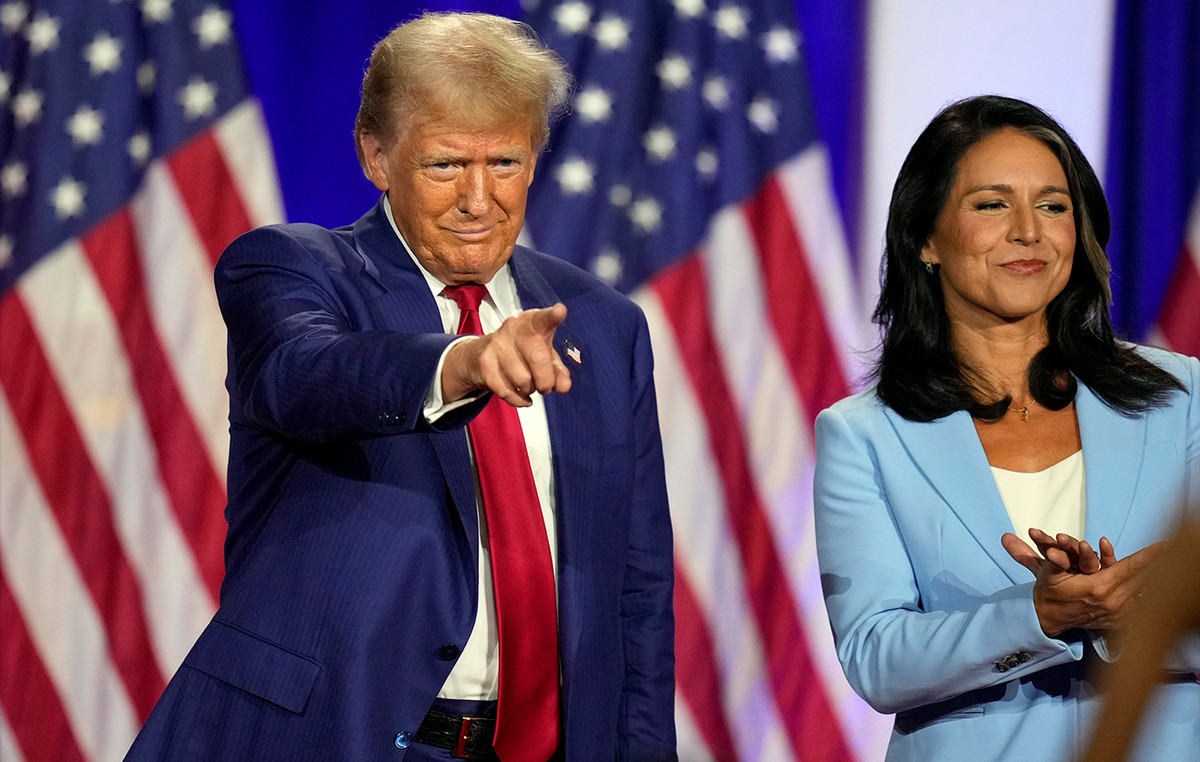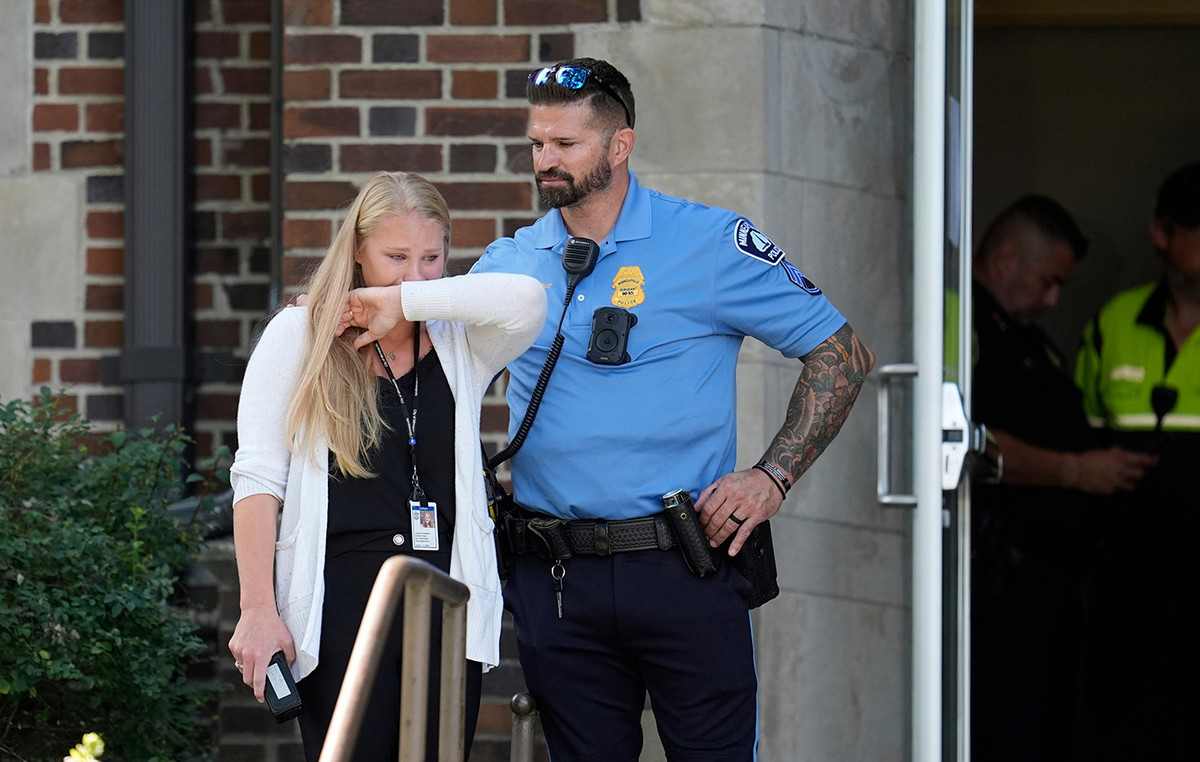This Saturday (26), a number of European Union countries seem to have advanced towards consensus on the exclusion of Russia from the global financial system SWIFT, as a form of economic sanction.
This high-security messaging network is responsible for connecting thousands of financial institutions around the world. The exclusion would make it much more difficult for financial institutions in Russia to send money in or out of the country.
A eurozone central bank governor told Reuters on Saturday that the decision to exclude Russia would be taken in a matter of days.
“O Swift it’s just a matter of time, very little time, days,” said the president, who asked not to be identified.
“Is it enough? It is not necessary? Absolutely. Sanctions only make sense if there are costs to both sides and that will be expensive,” she added.
THE Germanywhich relies on Russian gas to supply Europe’s biggest economy, is the most notable resistance to the measure.
However, this Saturday (26), Foreign Minister Annalena Baerbock and Economy Minister Robert Habeck issued a joint statement in favor of imposing “targeted and functional restrictions” involving the SWIFT network.
“We are urgently working on how to limit the collateral damage of decoupling from SWIFT in a way that affects the right people. What we need is a targeted, functional restriction of SWIFT,” he said.
Among other countries that took a stand this Saturday, an official linked to the presidency of the France said EU members are “close” to reaching a conclusion.
Speaking on condition of anonymity, the source told Reuters that no member of the bloc is blocking the idea, it is just a matter of negotiation.
the prime minister of Poland also spoke on Saturday (26) saying that “all sanctions should be on the table, including the closure of the Nord Stream gas pipelines and the exclusion of the Swift network”.
In addition Greece showed support and said he would agree to all EU sanctions against Russia for the war in Ukraine.
“Greece will support the EU’s line on sanctions, including on the SWIFT system,” officials told Reuters, who declined to be named.
One of the countries that until then was considered resistant to the idea of this sanction, the Italy said on Saturday that it would support sanctions, including measures involving the SWIFT system.
Italian Prime Minister Mario Draghi’s office said the prime minister had called Ukraine’s President Volodymyr Zelensky on Saturday. During the conversation, Draghi reiterated that Italy “will fully support the European Union’s line on sanctions against Russia, including on SWIFT.”
After speculation about alleged resistance to the sanction, the Minister of Finance of Cyprus posted on Twitter on Saturday (26) that the country did not oppose proposals to cut Russia from the global payments network.
At a press conference, the Prime Minister of LithuaniaIngrida Simonyte, stated that “Western partners” are moving closer to the decision to prevent Russian access to SWIFT.
The Society for Worldwide Interbank Financial Telecommunication was founded in 1973 to replace telex and is now used by over 11,000 financial institutions to send secure messages and money orders. With no globally accepted alternative, it is an essential pipeline to global finance.
Russia’s removal from Swift would make it much more difficult for financial institutions to send money in or out of the country, causing a sudden shock to Russian companies and their foreign customers – especially buyers of US dollar-denominated oil and gas exports.
“The cut would end all international transactions, trigger currency volatility and cause massive capital outflows,” Maria Shagina, a visiting researcher at the Finnish Institute of International Affairs, wrote in an article last year for the Carnegie Moscow Center.
Russia’s exclusion from SWIFT would cause its economy to shrink by 5%, estimated former finance minister Alexei Kudrin in 2014, the last time the sanction was considered in response to Russia’s annexation of Crimea.
Swift is headquartered in Belgium and managed by a board made up of 25 people, including Eddie Astanin, chairman of the board of directors of the Central Counterparty Clearing Center of Russia.
The system, which describes itself as a “neutral utility”, is incorporated under Belgian law and must comply with EU regulations.
UK Defense Secretary Ben Wallace said on Friday that removing Russia requires consensus.
“These are international organizations, and if not every country wants them kicked out of the Swift system, it gets difficult,” he told the BBC.
What happens if Russia is removed?
There is precedent for removing a country from Swift. The system shut down Iranian banks in 2012 after they were sanctioned by the European Union over the country’s nuclear program. Iran lost nearly half of its oil export revenue and 30% of foreign trade after the disconnect, according to Shagina.
“Swift is a neutral global cooperative created and operated for the collective benefit of its community,” the organization said in a statement Thursday. “Any decision to impose sanctions on individual countries or entities rests solely with the competent government bodies and applicable legislators,” he added.
The United States and Germany have the most to lose if Russia goes offline, because their banks are the most frequent Swift users communicating with Russian banks, according to Shagina.
But the pain can be generalized. Senior Russian lawmakers said shipments of oil, gas and metals to Europe would be halted.
“If Russia is disconnected from SWIFT, we will not receive currency [estrangeira]but buyers, European countries first, will not receive our products – oil, gas, metals and other important components,” Nikolai Zhuravlev, vice president of Russia’s upper house of parliament, said last week, according to media reports. state TASS.
Russia’s countermeasures
Russia has taken steps in recent years to mitigate the trauma if it is removed from Swift.
Moscow established its own payment system, SPFS, after being hit by Western sanctions in 2014 following the annexation of Crimea.
SPFS now has around 400 users, according to Russia’s central bank. Currently, 20% of domestic transfers are done through the system, according to Shagina, but message sizes are limited and operations are limited by business hours.
The fledgling China Cross-Border Interbank Payment System, or CIPS, may provide another alternative to SWIFT. Moscow may also be forced to resort to the use of cryptocurrencies. But these are not attractive alternatives.
“I am not sure that other countries, especially those whose share of trade with Russia is large in balance, will support the shutdown,” added Zhuravlev.
— With contributions from Nadine Schmidt in Berlin, Joseph Ataman and Camille Knight in Paris.
Source: CNN Brasil
I am Sophia william, author of World Stock Market. I have a degree in journalism from the University of Missouri and I have worked as a reporter for several news websites. I have a passion for writing and informing people about the latest news and events happening in the world. I strive to be accurate and unbiased in my reporting, and I hope to provide readers with valuable information that they can use to make informed decisions.







